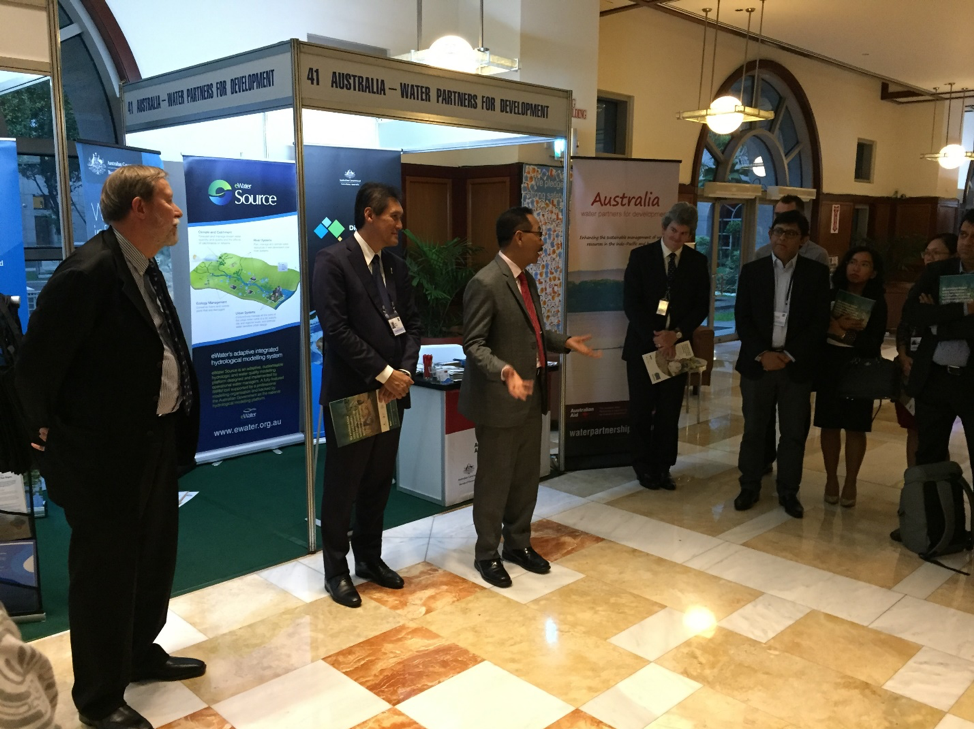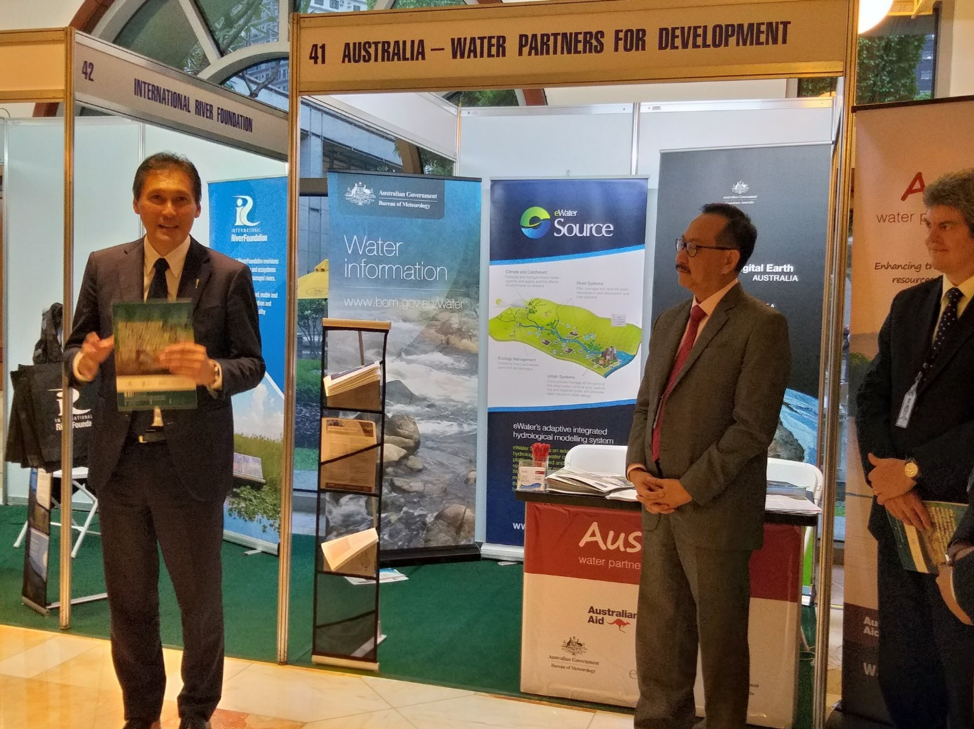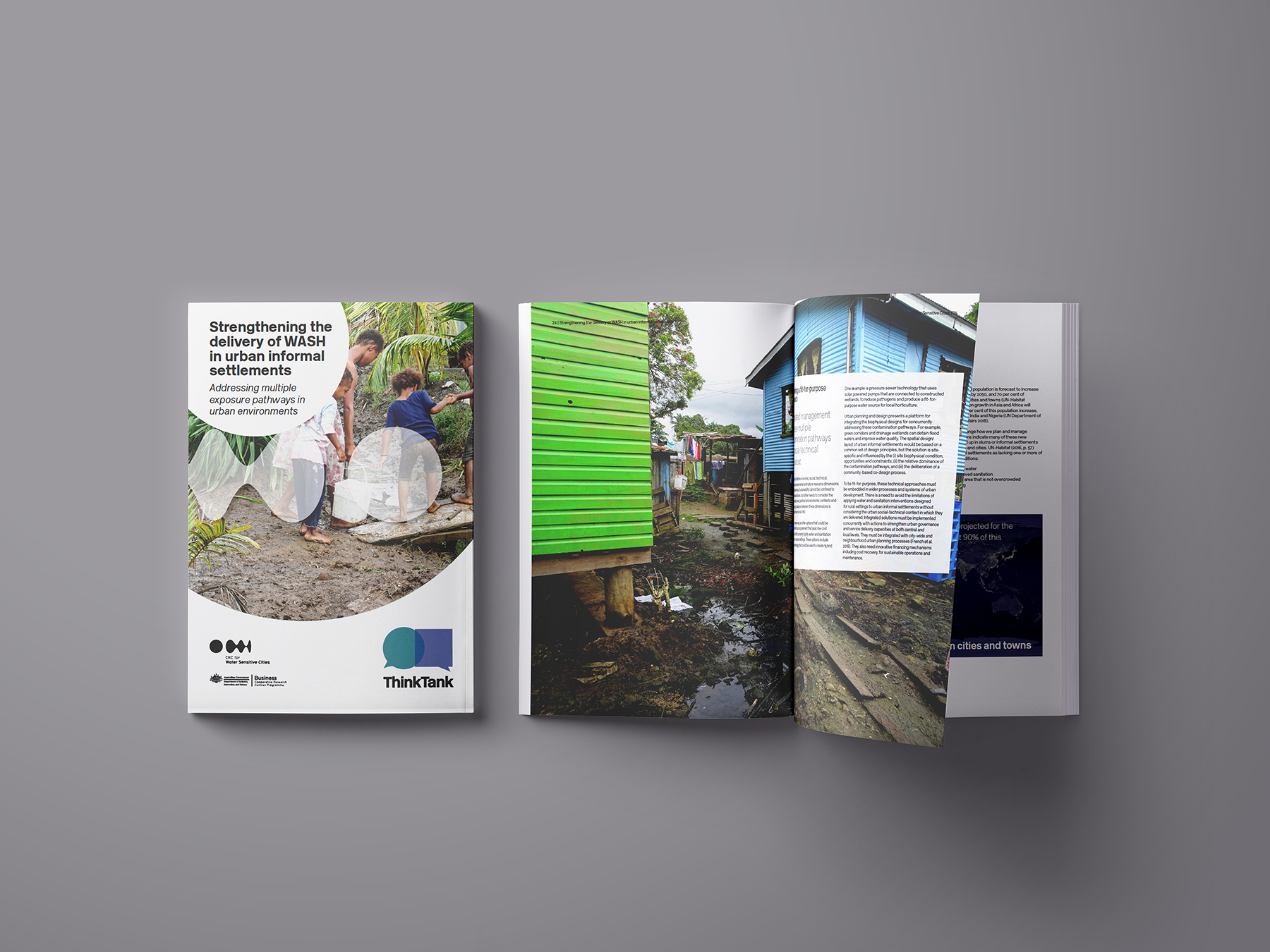A different approach to improving water quality and sanitation in urban informal settlements
People living in urban informal settlements are among some of the most disadvantaged people in our communities, often lacking basic rights such as access to clean water and sanitation. A new thought piece by the CRC for Water Sensitive Cities ThinkTank—Strengthening the delivery of WASH in urban informal settlements—is asking all those involved in helping urban informal settlements to consider an holistic approach to providing water and sanitation services.
Our experience suggests current approaches—both the centralised (networked) approaches usually found in urban areas, and the decentralised approaches found in rural areas—are not producing the health and environmental outcomes we desire in the urban 21st century.
So, to leave no-one behind and reach first those who are furthest behind, the paper proposes an holistic approach to ensure:
- safely managed sanitation
- flood management and mitigation
- improved environmental quality
- multiple fit-for-purpose water sources
- good hygiene behaviours and practices.
Professor Tony Wong (CEO, CRCWSC) launched the paper at the Asia Water Forum, hosted by the Asian Development Bank (ADB), in Manilla 2–5 October. Guests included ADB Vice President (Knowledge Management) Bambang Susantono and two Australian Executive Directors of ADB—Executive Director Anthony McDonald and Alt Executive Director Scott Dawson.


“Tackling water quality and sanitation issues in urban informal settlements is very complex. We need further research to fully understand the context, the relative significance and interplay between multiple faecal contamination pathways, and the role of other urban water stressors”, said Tony.
“In the meantime, we propose an holistic approach to developing urban interventions to deliver water, sanitation and hygiene (WASH) services, which includes a combination of interventions that also account for context-specific factors at a range of scales—from individual behavioural, to the household and the residential environment scale.”
The paper incorporates the views of experts from the CRCWSC, Monash Sustainable Development Institute, Emory University (USA) and Stanford University (USA), as well as others. We thank them for their time and considered views about ways to produce better amenity, health and environmental outcomes for people living in urban informal settlements. The CRCWSC also acknowledges support from the Australia Government Department of Foreign Affairs and Trade in producing the paper.
